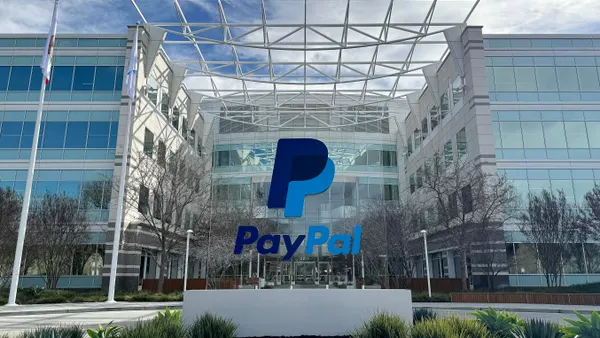Dive Brief:
- Installment payments company Splitit is going private after signing a definitive agreement with private equity firm Motive Partners for a $50 million investment, Splitit said Wednesday.
- The investment will be in two parts of $25 million each, according to a Splitit news release Wednesday. The first tranche will be invested immediately when shareholders approve Splitit voluntarily delisting from the Australian Securities Exchange and shifting its base from Israel to the Cayman Islands, the release said. The second tranche of $25 million will be invested when Splitit achieves certain 2023 full-year financial performance milestones, “which the company is currently on track to exceed,” Splitit said.
- Atlanta-based Splitit plans to use the funding to speed up growth and aid in executing the company’s strategic plan, the news release said.
Dive Insight:
Splitit, which facilitates installment lending on a customer’s credit card, expects the delisting to occur in late November, pending shareholder approval of the proposed transaction in late October or early November, according to the release.
As part of the transaction, Splitit will merge with “a newly formed Cayman Islands entity via a reverse triangular merger under Israeli law,” the company said.
That redomiciling as a private company in the Cayman Islands will afford Splitit lower administrative costs, an operating environment that’s more flexible and “improved prospects of accessing future growth capital at an attractive valuation,” the company said in the release. Splitit also envisions the move increasing the company’s ability to attract and retain employees.
The investment from New York-based Motive Partners “significantly strengthens our balance sheet, allowing the team to focus on our white-label product strategy, innovation, and our tier one global distribution partners,” CEO Nandan Sheth said in the release.
Existing shareholders can choose to retain ownership in Splitit as a private company, or to reduce ownership through trading on the Australian Securities Exchange before the delisting is completed, Splitit said in the release.
In a second-quarter earnings report issued July 31, Splitit said revenue jumped 39% to $3.1 million, as operating expense declined 14% to $4.4 million, suggesting the company isn’t profitable. The report didn’t provide a loss figure.
Splitit is “myopically focused on our path to profitability,” and has a goal to attain that in the near future, Sheth said. He wouldn’t provide a more specific timeframe. “We are not going to sacrifice growth for profitability,” he said earlier this month. “We will become profitable, but we want to ensure that the top line is growing also, and we want to ensure that we’re investing in the business.”
Splitit continues to hire, Sheth said during an interview earlier this month. The company is counting on a partnership with card network Visa announced this year to bolster growth, and Sheth has asserted any expense increases at the company will be backed by revenue.
Sheth implemented cost management exercises after he joined the company in January 2022, including curtailing high salaries and “frivolous” public relations and marketing expenses.
He contends the company is well-positioned as its addressable market includes tens of millions of credit cardholders that can use the company’s product without any registration. Additionally, Splitit’s risk quotient is “significantly lower” than other BNPL players in the market because the company isn’t underwriting new loans, Sheth said.











